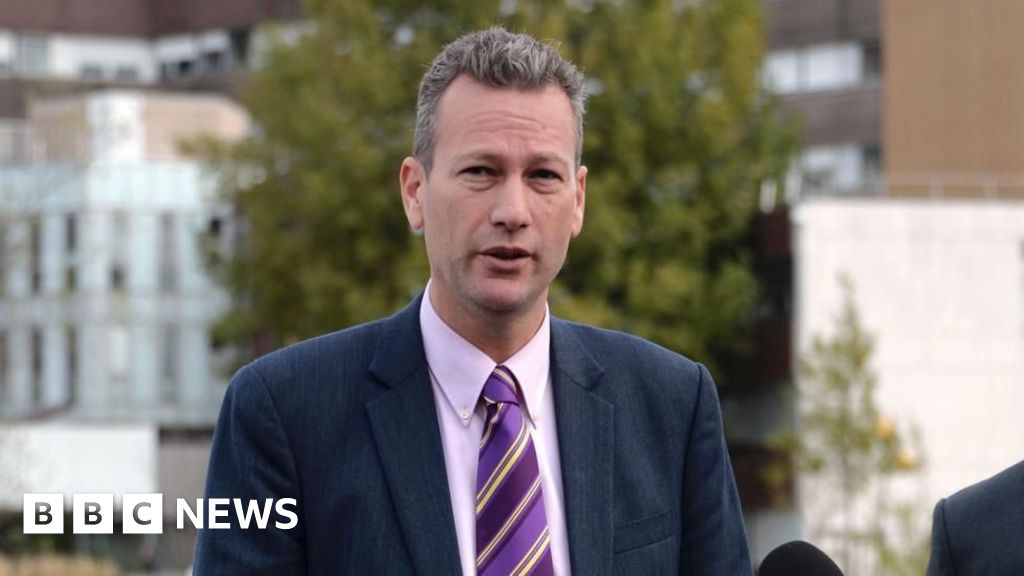18 minutes ago
Esme Stallard,Climate and science reporter, BBC News

 Getty Images
Getty Images
The UK is at risk of "uncontrolled chemicals" which could harm people and the environment, say experts.
The Royal Society of Chemistry (RSC) has called for the establishment of a Chemicals Agency to take charge of the regulation of chemicals in the UK.
It said the rise in the use of pollutants often referred to as ‘forever chemicals’ is an example of where regulation is “falling through the cracks”.
The government has been approached for comment.
RSC said they decided to make a public intervention after waiting for more than four years for clarity on how chemicals should be regulated following the UK’s exit from the EU.
Prior to 2020, the UK and the 27 current EU countries worked in tandem to research and monitor chemicals, and set rules around their use.
Following Brexit, the UK has undertaken sole responsibility for chemical regulation domestically, but there have been delays establishing a new system.
“The current regulatory regime for chemicals in the UK is not fit-for-purpose, failing to support innovation or to adequately protect our waterways, soil, air and built environment,” said Professor Gillian Reid, president of the Royal Society of Chemistry.
Last month the government announced it was consulting on a new chemicals’ registration process – intended to be the key mechanism by which the UK will track which chemicals are being imported into the country.
The process was intended to be in place from the day the UK officially left the EU, four years ago, in 2020. The RSC said the delay is impacting dozens of industries which operate across the UK and EU market - from cosmetics, to food manufacturing, to agriculture.
Stephanie Metzger, policy advisor at the RSC and co-author of the report, said: “Businesses are in this 'limbo' phase. This makes it really difficult for them to plan financially what they are going to invest in, and decide what research they might want to do.”

 Getty Images
Getty Images
The cosmetics industry will be affected by any new process of regulating chemicals in the UK
The Chemical Industries Association (CIA), the trade body for businesses working with chemicals, agreed that its members needed clarity, but said it was “premature” to call for a Chemicals Agency, claiming it would merely delay the government process further.
The Royal Society of Chemistry maintains that a centralised Chemicals Agency will also help to coordinate scientific studies.
At the moment, the RSC claims research into different chemicals can take place across more than five government agencies, leading to “fragmentation, duplication of efforts and a lack of clarity”, according to Prof Reid.
“In addition, the civil service is under-resourced and struggling to recruit and train skilled staff, making it difficult for government to keep up-to-date with the latest developments in chemicals and testing,” she said.

 Getty Images
Getty Images
Forever chemicals have been detected in the otter population in northeast England
In the last few years there has been growing evidence of the presence of potentially toxic chemicals like PFAS - or Perfluoroalkyl and Polyfluoroalkyl Substances - building up in UK soil and waterways.
High doses of these pollutants, also known as ‘forever chemicals’, have been linked to serious health concerns, including cancer and fertility issues.
Last week, researchers at the University of Cardiff found traces of a forever chemical which had never been manufactured in the UK present in an otter population in northeast England.
Dr Elizabeth Chadwick, from Cardiff University, who co-authored the research paper, said a ban on forever chemicals is challenging because they are widely used and there are more than 15,000 types in circulation.
“I think we need to do some work to really understand how the different groups of PFAS may have slightly different toxic effects, to help inform the regulation," she said.
"Which ones do we really need to focus on first?"
The EU is currently researching a possible ban on forever chemicals by 2026.
Last year, the UK government also announced it would develop a strategy for PFAS, but no paper has been published as yet.

 9 months ago
22
9 months ago
22









